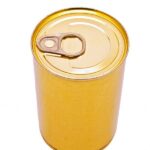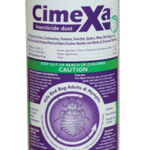DIY Solutions to Eliminate Bad Dog Breath: Natural Remedies and Step-by-Step Guidance

Understanding the Causes of Bad Dog Breath
Bad breath in dogs-also known as halitosis-is more than just an inconvenience; it can signal underlying issues in your pet’s health. The most common causes include plaque and tartar buildup, poor oral hygiene, certain foods, digestive issues, or even more serious conditions like kidney or liver disease. Tackling your dog’s bad breath with DIY solutions is most effective when you understand the root cause. If your dog’s breath is persistently foul, especially if accompanied by other symptoms (such as lethargy, vomiting, or loss of appetite), consult a veterinarian to rule out medical concerns before starting any home remedy [5] .
Daily Dental Care: Brushing Your Dog’s Teeth
Regular brushing is the gold standard for maintaining your dog’s oral health. Daily brushing physically removes bacteria and food particles that contribute to bad breath. Use a toothbrush and toothpaste specifically designed for dogs-never use human toothpaste, as it can be toxic to pets. Introduce brushing gradually, rewarding your dog with praise or a healthy treat. If your pet resists brushing, try wrapping a piece of gauze around your finger and gently rubbing the teeth and gums. Consistency is key; even a few times a week can make a significant difference [3] .
Natural Remedies for Fresher Breath
Several natural remedies can help neutralize your dog’s breath and improve oral hygiene. These methods are safe when used appropriately and can be easily incorporated into your dog’s routine.
1. Parsley and Mint
Parsley and mint are not just flavorful herbs-they contain chlorophyll and antimicrobial compounds that help neutralize odors. Chop a small amount of fresh parsley or mint and sprinkle it over your dog’s food. You can also steep fresh parsley in hot water to make a mild tea; let it cool before adding a splash to your dog’s water bowl. Always use fresh herbs, as dried versions may be less effective [1] [2] .
Example:
A medium-sized dog might benefit from a teaspoon of chopped parsley mixed into their evening meal a few times a week. Monitor for digestive upset and discontinue if any occurs.
2. Coconut Oil
Coconut oil contains natural antiviral, antifungal, and antibacterial properties. Add a small spoonful (about 1/2 to 1 teaspoon for small to medium dogs; up to 1 tablespoon for large dogs) to your dog’s food daily. Alternatively, you can use coconut oil as a gentle toothpaste substitute by applying it to their teeth and gums with a finger brush. Start slowly to monitor for any digestive issues [3] [5] .
Implementation:
Begin with a small amount and gradually increase. Coconut oil also supports skin and coat health.

Source: pinterest.com
3. Crunchy Fruits and Vegetables
Carrots, apples, and celery are excellent natural toothbrushes. Their crunchy texture helps scrape away plaque and tartar, reducing the bacteria that cause bad breath. Always cut fruits and vegetables into bite-sized pieces and remove seeds (apple seeds are toxic). Avoid grapes, raisins, onions, and garlic, as these are harmful to dogs [4] [5] .

Source: artofit.org
Example:
Offer a few carrot sticks or apple slices as treats throughout the day. You can also freeze them for a refreshing, teeth-cleaning snack.
4. Apple Cider Vinegar and Lemon Juice
Adding a small amount of apple cider vinegar or lemon juice to your dog’s water bowl can help reduce odor-causing bacteria. Use no more than 1/2 teaspoon per bowl of water, and always monitor your pet for any signs of gastrointestinal distress. These ingredients contain antibacterial properties that may reduce plaque buildup, but should be used sparingly and never as a substitute for veterinary dental care [1] .
Guidance:
Introduce gradually and always provide a separate bowl of plain water as an alternative.
5. Probiotics and Digestive Health
A balanced digestive system contributes to fresher breath. Probiotics -beneficial bacteria-help maintain gut health and can be found in plain, unsweetened yogurt or in supplements formulated for dogs. Always check with your veterinarian before introducing new supplements. Start with small amounts mixed into your dog’s food and observe for tolerance [4] .
Alternative:
Seek out probiotic dog treats or consult your vet for recommended brands and dosages.
Step-by-Step DIY Plan to Improve Your Dog’s Breath
- Establish a Brushing Routine: Begin by brushing your dog’s teeth daily or as often as possible. Use a pet-safe toothbrush and toothpaste, offering praise and treats for cooperation. If brushing is not feasible, try finger brushing or dental wipes.
- Incorporate Natural Foods: Add crunchy fruits and vegetables to your dog’s snack rotation. Chop carrots, apples, or celery into appropriate-sized pieces and monitor your dog as they chew.
- Supplement with Herbs: Sprinkle fresh parsley or mint over your dog’s food or brew parsley tea for their water. Start with small amounts and increase gradually.
- Introduce Coconut Oil: Mix coconut oil into your dog’s meals or use as a gentle oral cleaner. Begin with small quantities and observe for any changes in digestion.
- Support Digestive Health: Offer a spoonful of plain, unsweetened yogurt or a dog-specific probiotic supplement. Consult your veterinarian for guidance on appropriate products and dosages.
- Monitor for Results: Keep a weekly log of your dog’s breath and overall oral health. Note any changes or improvements, and adjust routines as necessary.
If your dog’s breath remains persistently foul despite consistent home care, schedule a veterinary dental checkup to rule out underlying health issues.
Alternative Approaches and Additional Tips
Beyond the core remedies, you can further support your dog’s oral health by:
- Offering raw bones (never cooked, as they splinter) to help clean teeth, but only under supervision and after consulting your vet.
- Exploring dental chews or specially formulated dog treats that promote oral hygiene. These are widely available at pet supply stores and online retailers.
- Ensuring your dog has regular access to clean, fresh water to rinse away food particles and bacteria.
- Scheduling annual veterinary dental cleanings for a thorough evaluation and plaque removal.
Always introduce new foods or supplements gradually and observe your dog for any signs of intolerance or allergies. Consult your veterinarian if you are unsure about the suitability of any remedy for your individual pet.
Potential Challenges and Solutions
Some dogs may resist new foods, ingredients, or oral care routines. To overcome these challenges, try mixing herbs or coconut oil with your dog’s favorite wet food, using positive reinforcement during brushing, or starting with very small amounts of new ingredients. If your dog experiences digestive upset (vomiting, diarrhea, or loss of appetite), discontinue the new addition and consult your veterinarian.
Remember, while home remedies can significantly improve mild cases of bad breath, they are not substitutes for professional veterinary care-especially if your dog’s breath is very foul or accompanied by other symptoms.
How to Find Trusted Oral Care Products for Dogs
When shopping for dog dental care products, look for brands recommended by veterinarians. Visit your local pet store or use major retailers with extensive customer reviews and clear product labeling. For dental chews, ensure the product is appropriately sized for your dog and made from safe, non-toxic ingredients. If you need further guidance, you can:
- Ask your veterinarian for product recommendations during your next checkup.
- Search for “VOHC approved dog dental products”-the Veterinary Oral Health Council lists products that meet their standards for effectiveness.
- Contact pet health customer service lines for more information on specific brands.
Key Takeaways
Eliminating bad dog breath at home is possible with consistent care and natural remedies. Brushing, introducing crunchy fruits and vegetables, adding fresh herbs, and supporting gut health are all effective DIY strategies. Monitor your dog’s progress and always consult a veterinarian for persistent or severe cases. By following these step-by-step methods and seeking out trusted products, you can maintain your dog’s oral health and enjoy fresher breath every day.
References
- [1] Anasazi Animal Clinic (2024). Natural Remedies for Bad Breath in Dogs.
- [2] Bethel Pet Hospital (2025). 4 Natural Remedies for Your Dog’s Bad Breath.
- [3] Healthy Smiles Pet Dental (2025). 6 Home Remedies to Stop Stinky Dog Breath.
- [4] Pet Method DFW (2024). Say Goodbye to Stinky Dog Breath: Natural Foods for Fresh Pet Breath.
- [5] Chewy (2025). 6 Ways to Naturally Freshen Your Dog’s Breath.






